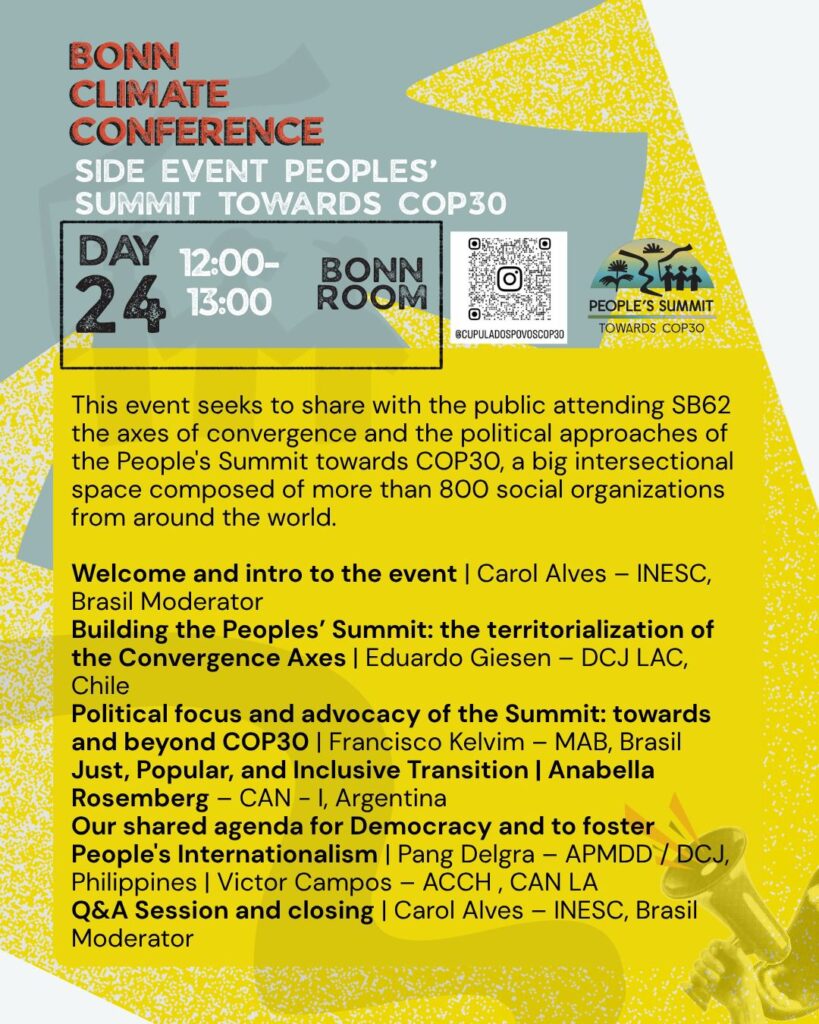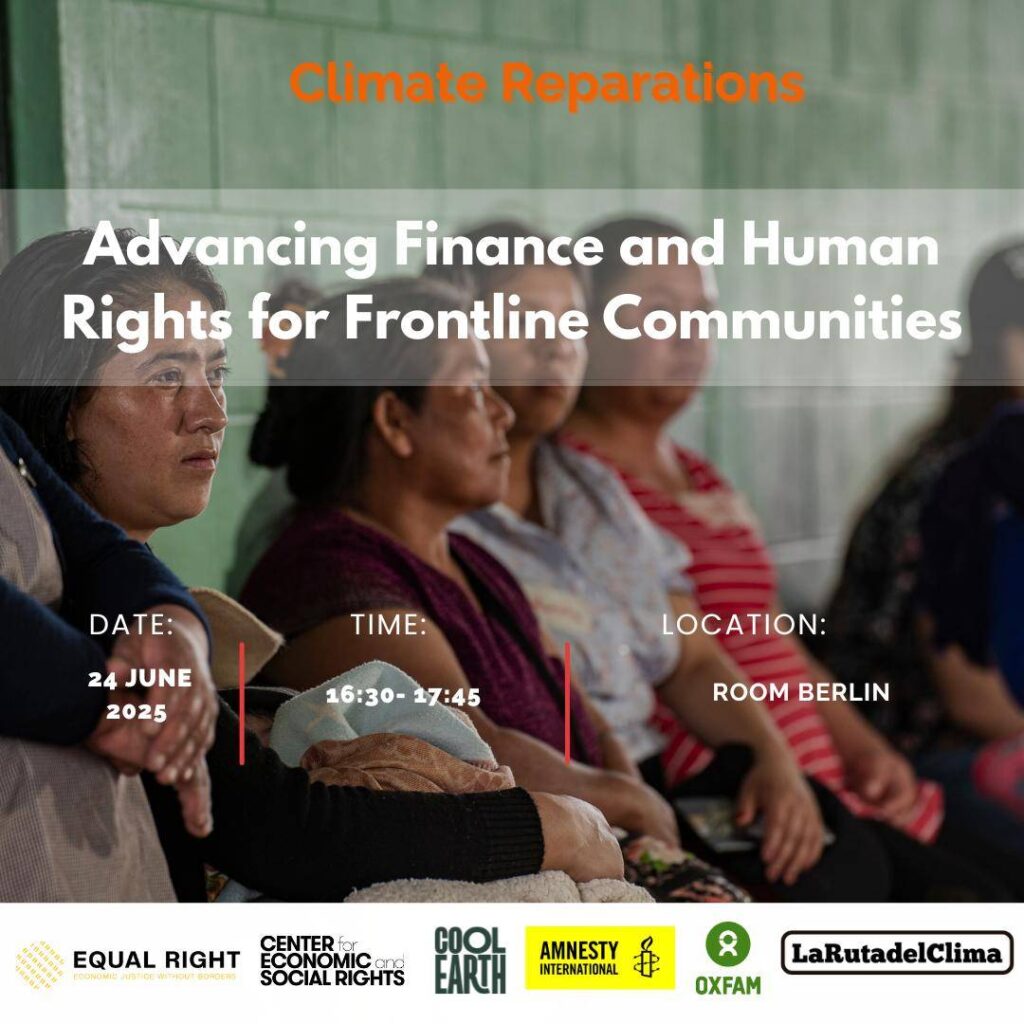DCJ/CAN – ENGO Intervention June 24
Thank you co-chairs. I am speaking on behalf of the Demand Climate Justice and Climate Action Network, the two ENGO constituencies. We are missing the flexibility expressed in the first week and we are concerned about the way forward. We would like to stress the great urgency for this work programme to deliver both, strong principles deriving from the dialogues AND actionable outcomes for people on the ground. The adoption of a solid just transition text stands in sharp contrast to the current global climate riddled with violent conflict.
We thank the Co-Chairs for developing a draft text that includes some of the proposals observer constituencies and civil society had forwarded.
On Para 11, we welcome that the key messages from the dialogues are being developed into guiding principles on just transition. We consider that the next dialogues should provide a space to further develop these principles and address certain dimensions of just transition that have not been sufficiently addressed here yet: such as the role of international cooperation and the importance of applying just transition in critical minerals, renewable energy phase-in, food and agriculture systems, and others.
We see para 24-27 as fundamental to address the need for support and international cooperation for just transition pathways
On Para 27 on the role of non-market approaches, we call on all parties to keep this in the decision text.
On Para 28, we strongly urge parties to establish a global mechanism, the Belem Action Mechanism for JT, that ensures action on just transition that benefits workers, affected communities, and all rightsholders on the ground. We find promise in the strong signals sent by observer constituencies in their alignment on establishing this mechanism. We stand in solidarity with rightsholders in their pursuit of a just transition.
We urge greater specificity in the description of each of the institutional arrangements forwarded by parties, especially listing down the functions that these arrangements will have. Any new institutional arrangement must have a knowledge-sharing arm, an implementation arm for technical assistance, and a coordination body that enables the formal representation of groups affected and rightsholders that must be involved in the decision-making of the principles, practices, and processes of the just transition.
Lastly, we reiterate our call for parties to concretize their sentiments on inclusivity and participation of rightsholders in just transition. This can be done through a decision text that maintains explicit references to human rights in Paras 11b, 11h, and 18 and by Calling on countries to establish national institutions for peoples’ participation that can ensure the involvement of all rights holders in planning and implementing just transition measures and policies at the national and local levels. We are open to engaging all parties in developing language that can address these demands and enable progress on the road to Belem.




